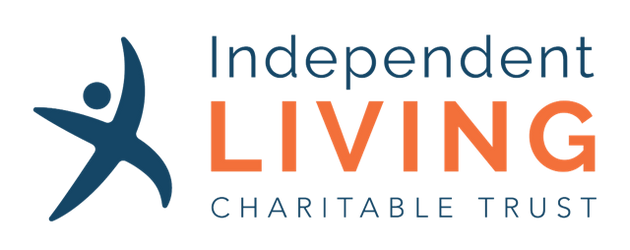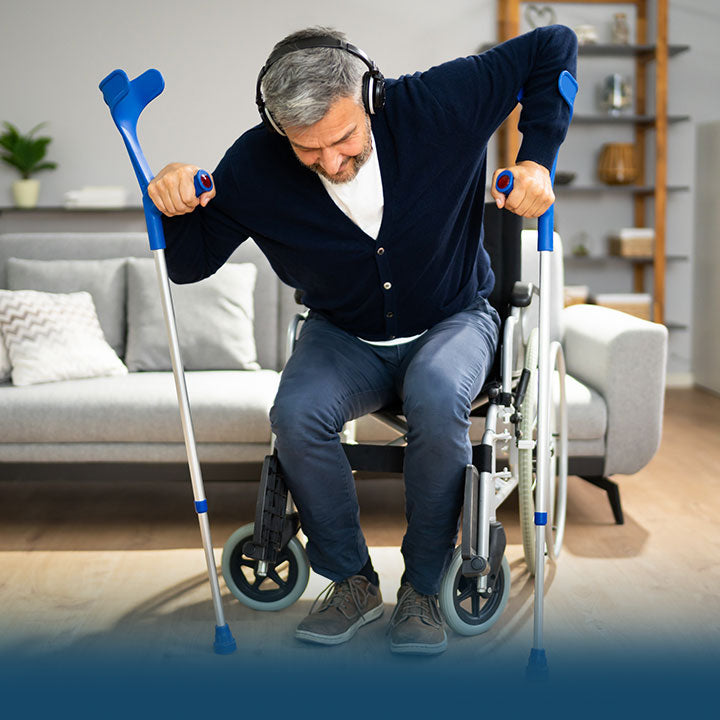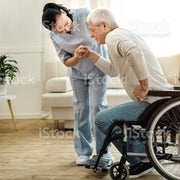- It's important to get a medical evaluation to determine the nature and severity of your disability. Your healthcare professional can provide you with information about your condition and suggest possible treatments and accommodations.
- Joining a support group can help you connect with others who are dealing with similar challenges. You can learn from their experiences and get emotional support.
- Depending on the nature of your disability, you may need to make modifications to your home and work environment to make them more accessible. For example, you may need to install wheelchair ramps, grab bars, or other assistive devices.
- Work with an occupational therapist. An occupational therapist can help you develop strategies for managing your disability in your daily life. They can teach you how to use assistive devices, modify your daily routines, and adapt your environment to make it easier to navigate.
- Take care of your mental health: Dealing with a new physical disability can be challenging, and it's important to take care of your mental health. Consider seeing a mental health professional or therapist who can help you develop coping strategies and provide emotional support.
One in four New Zealanders identifies as disabled in some way. Everyone's experience with disability is different, and there is no one-size-fits-all solution. It's important to find what works for you and to take things one day at a time.
Here’s some advice from disabled people, advocates and those offering support.

At Independent Living, we are here to help
We provide information and advice on accessing Funded Disability Support Services to those with disabilities and the public.
This Disability Information Advisory Service (DIAS) is free of charge to all people wanting help to navigate the disability sector, looking for services, and/or equipment to assist them with living a normal life.
- We have Information Consultants at each of our stores in Botany, Royal Oak and Browns Bay.
- Alternatively, you can contact one of our information Consultants by using our
- Contact Form
- Email Us -
- Phone us - 0800 625 100
- We provide a Mobile Service that provides free information and equipment demonstrations to Retirement Villages and Community Groups.
- We have a Support Options Directory which outlines the avilable services within the Auckland Region.
Needs assessments for government funded support (NASC)
If you or someone you care for needs support because of a disability, you can ask for government help.
A good place to start is to get on the phone to a Needs Assessment Service Coordinator (NASC) organisation.Their job is to help you identify what support you need.
If you qualify for government assistance, the NASC will organise the assistance you require. They can also help in your search for additional community resources.
Needs assessments are government funded and free.
https://www.disabilitysupport.govt.nz/disabled-people/assessment-and-funding
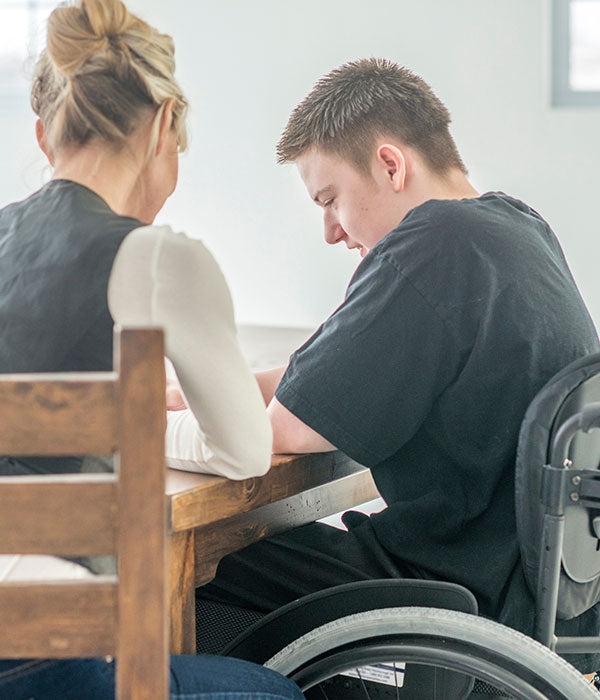
Get support from the right people
Understanding the different types of people that may be able to assist you with your disability is important.
A Kaitūhono/Connector is an ally that works alongside disabled people and whānau to build an aspirational Good Life plan, connect with community, and prepare for the future.
Occupational therapists (also known as OTs) provide therapy and support to people who need help to carry out everyday activities because of illness, injury, or disability. Their ultimate goal is to enable people to participate in the activities of everyday life.
Physiotherapists (also known as PTs) help people regain or improvement their movement and function after they have been affected by an injury, disability, or health condition. They can also give advice on how to prevent injuries.
Speech language therapists help people who struggle to communicate verbally or to swallow.
Hearing therapists help people adjust to living with hearing loss. They assist people to manage their hearing loss in their everyday lives.
For further information on how these people help and links through to organisations visit Firstport
Living options and home support
Supported Living and Community Residential Support Services support disabled people to live independently in a safe and appropriate environment. Find out about each of these options and how they can be tailored to the level of support you need.
Housing and Living options
Supported Living and Community Residential Support Services support disabled people to live independently in a safe and appropriate environment.
Modifying your Home
You can make changes to your home to make it more accessible and easier to live in. Find out about common types of home modifications and what funding is available.
Support around the house
Home and Community Support Services funded by the Ministry provide support with household tasks and personal care, so you can live independently at home. Find out what types of tasks are covered and how to get support.
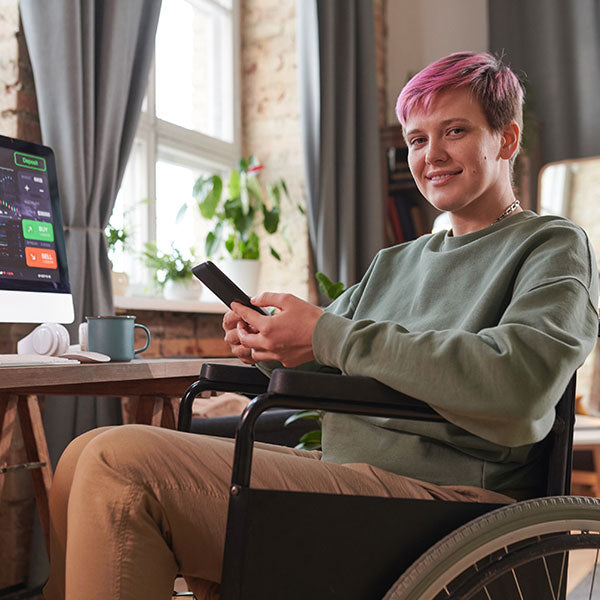
Enabling Good Lives
Enabling Good Lives (EGL) is the new approach to the disability system in New Zealand.
EGL is a partnership between the disability sector and government agencies to ensure disabled people have greater control over their lives. This includes having a say in how resources are used.
The ultimate goal of EGL is to ensure that disabled people and their families have greater choice and control over their supports and lives and make more use of natural and universally available supports.
It also creates opportunities for family, whānau and friends to gain the skills, confidence, and information they need to support disabled people to live an everyday life in everyday places.
Visit the Enabling Good Live website to learn more:
The EGL approach is based on eight key principles.

The New Zealand Disability Strategy
The New Zealand Disability Strategy will guide the work of government agencies on disability issues from 2016 to 2026.
Any person or organisation can use it to find out more about issues that are significant to people with disabilities and to help them make the best decisions possible.
The vision of the New Zealand Disability Strategy is for all of New Zealand to work together to create a non-disabling society where disabled people have an equal opportunity to fulfil their goals and aspirations.

Advocacy and legal support
Disability services should support the life you want to live. You are the one who best understands your circumstances and requirements, but occasionally, you can feel as though you need extra assistance when dealing with businesses, healthcare professionals, or government agencies like Work and Income.
In New Zealand, when you use a health or disability service you have rights. The Health and Disability Commissioner (HDC) says you have:
- The right to be treated with respect.
- The right to be treated fairly.
- The right to dignity and independence.
- The right to have good care and support that fits your needs.
- The right to be told things in a way that you understand.
- The right to be told everything you need to know about your care and support.
- The right to make choices about your care and support.
- The right to have support.
- The right to decide if you want to be part of training, teaching or research.
- The right to make a complaint.
For help with discrimination or other legal problems visit https://firstport.co.nz/legal-rights

Office for Disability Issues
The Office for Disability Issues is the strategic and whole-of-government focused policy team located within Whaikaha - Ministry Of Disabled People.
It is the focal point within the government on disability issues. The key areas of responsibility for the Office include:
- supporting the Minister for Disability Issues
- coordinating and reporting on implementation of the United Nations Convention on the Rights of Persons with Disabilities, New Zealand Disability Strategy and the Disability Action Plan.
- providing advice to government agencies on disability issues.
- sharing ideas and growing the understanding of issues that are important to disabled people.
- helping to facilitate an effective working relationship between the disability sector and government agencies.
- providing secretariat support to the New Zealand Sign Language Board and Fund.
Visit https://www.odi.govt.nz/ and https://www.whaikaha.govt.nz/about-us/office-for-disability-issues/ for more information.
